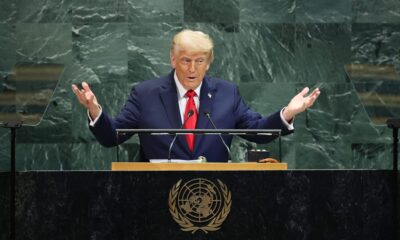EU Affairs
Putin forced to raise taxes again as Ukraine war drains finances
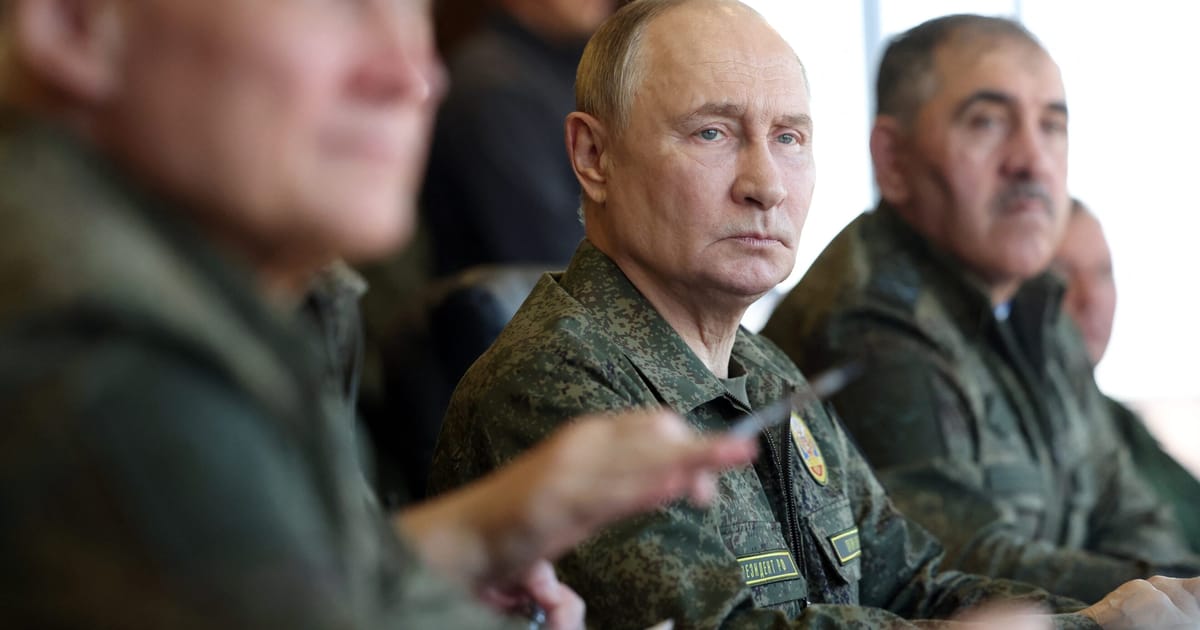
Read more on post.
The Finance Ministry is not just raising tax rates. It’s proposing to bring far more small and medium-sized businesses into the tax net, reducing the annual revenue threshold for reporting to 10 million rubles ($120,000) from the current 60 million. It’s also introducing a 5 percent tax on gambling and a 25 percent income tax on bookmakers. The measures are “aimed primarily at financing defense and security,” the Ministry said in a statement.
VAT on “socially significant goods” such as children’s products, food and medicines will remain at 10 percent.
The Kremlin has largely financed three years of war with the export of oil and refined products, and by drawing down a National Welfare Fund that had been built up in years when it was making more money from oil and gas exports than it could use. Over the last couple of years, it has also taken in considerably more tax from an economy that has run hot due to the transition from a civilian to a war footing.
Running hot … and cooler
However, the economy has slowed this year as a credit boom has abruptly ended. Economy Minister Maxim Reshetnikov said earlier this month that the economy “is cooling faster than expected.” Crude prices have fallen as Saudi Arabia and the United Arab Emirates have successfully lobbied for a steady increase in oil production, and Reuters estimates that revenue from oil and gas sales will be down 23 percent on the year this month.
The Ministry had originally intended to replenish the National Welfare Fund this year, but its most recent projections, in May, showed it needed to draw down around 10 percent of the fund’s remaining liquid assets in 2025. It now intends to lower the price threshold at which oil-generated tax flows into the reserve fund, rather than the general budget.
The Ministry made its proposals to the cabinet on Wednesday just a couple of days before it is due to bring a formal budget proposal for 2026 to the Duma.
The announcement comes a day after U.S. President Donald Trump appeared to signal a shift in his attitude toward Russia and its president, with whom he has previously claimed to have a good relationship. In a social media post, Trump said that “Putin and Russia are in BIG Economic trouble” and that Ukraine’s increasingly ambitious campaign of drone strikes against Russian oil refineries is making Russia look like a “paper tiger.”
Kremlin spokesman Dmitry Peskov responded on Wednesday that Russia, which has raised alarm in European capitals over the last week with a series of violations of EU countries’ airspace, “is a real bear … there is nothing paper about it.”
EU Affairs
Jailed mayor urges EU to halt Bulgaria’s slide toward authoritarianism
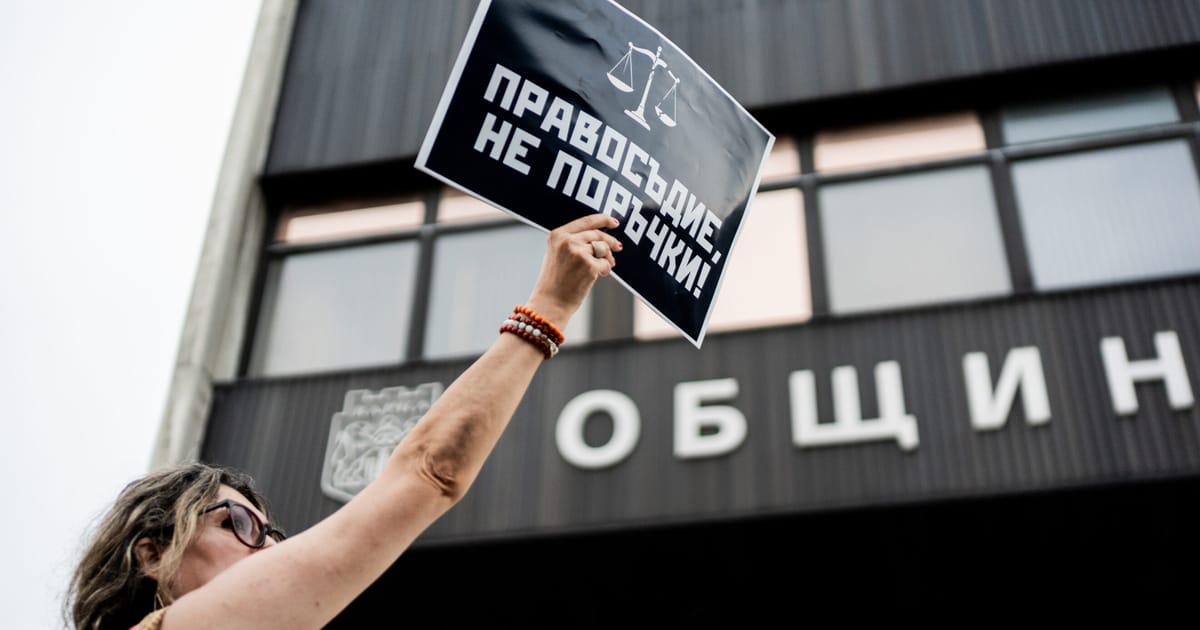
Read more on post.
The European Commission president’s trip comes on the heels of an announcement by Germany’s Rheinmetall that it plans two new factories in Bulgaria, making the country Europe’s largest gunpowder manufacturer.
Aug 31
3 mins read
EU Affairs
Les Européens à la fois contents et méfiants du revirement de Trump sur l’Ukraine
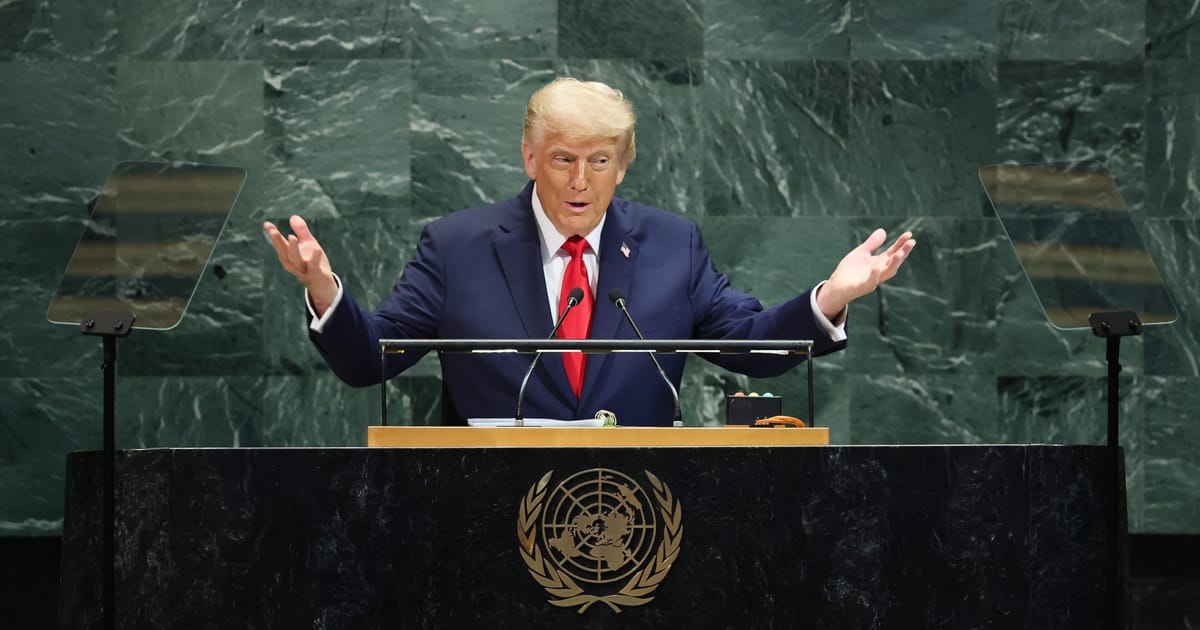
Read more on post.
Le chef de cabinet de la présidente de la Commission européenne est l’homme à appeler pour faire avancer les choses à Bruxelles. Mais il a trop de pouvoir, estiment ses détracteurs, de plus en plus nombreux.
Jul 9
17 mins read
EU Affairs
European Parliament scolds EU asylum agency over reports of mismanagement
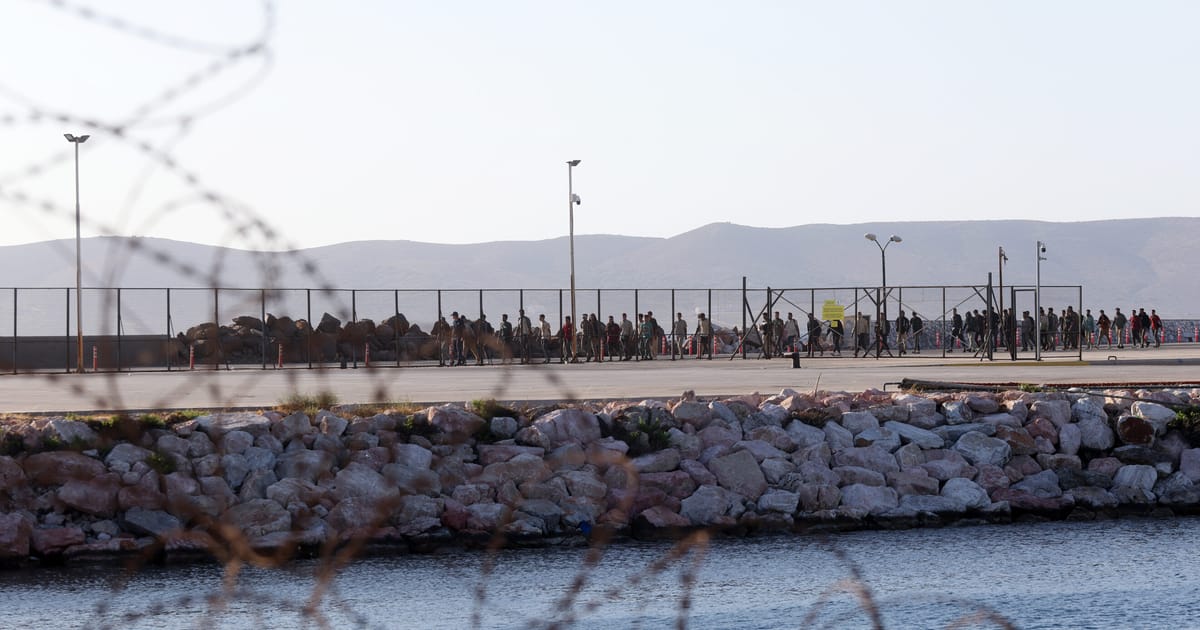
Read more on post.
The asylum agency coordinates the implementation of the EU’s migration policy among member countries, including asylum applications and deportations.
Members of the European Parliament who scrutinized the agency’s 2023 accounts wrote that the legislature “strongly deplores the weaknesses in the management of conflicts of interest within the agency.”
The approval of the accounts is non-binding but allows the Parliament to issue recommendations to EU bodies on how to handle their budgets.
Following an exchange with the agency’s executive director, Nina Gregori, lawmakers on the Committee on Budgetary Control voted to greenlight the accounts, albeit with a formal reprimand and demands for changes to the agency’s management. The accounts still need to be ratified in the plenary in October.
Lawmakers recommended that the agency establish an independent internal ethics body, strengthen its whistle-blowing protection rules, and publish an anonymized version of the OLAF report.
The Parliament also instructed the agency to establish an exit interview program to identify why there is such high turnover among staff, and to report back to lawmakers on the results during the 2024 accounts discharge procedure.
MEPs vowed to continue their close scrutiny of the agency, especially of its implementation of the recommendations of its supervisory board. Despite the findings of the OLAF report, the board decided not to launch disciplinary procedures against top management and opted for structural reforms within the agency.
Green MEP Erik Marquardt, the lead negotiator on the file, did not reply to a request for comment.
-
Breaking News1 day ago
Barack Obama to be conferred with freedom of Dublin at ceremony on Thursday
-
Breaking News2 days ago
Opinion: To be or not to be? Why it is time to drop Shakespeare’s compulsory status in Leaving Cert
-
Culture1 day ago
Taylor Swift’s new cinema outing generates more than €12million in just 24 hours
-
Breaking News2 days ago
Minister rejects proposal to make Shakespeare optional in Leaving Cert English
-
Breaking News2 days ago
Families at risk of homelessness may have another chance to avail of tenant-in-situ scheme
-
Politics1 day ago
European Parliament snubs Orbán with vote to shield Italian MEP from Hungarian arrest
-
Travel & Lifestyle2 days ago
The Best Way to See Rome? On a Running Tour at Sunrise
-
Culture1 day ago
Milan Fashion Week 2025: Unmissable shows and Giorgio Armani in mind






